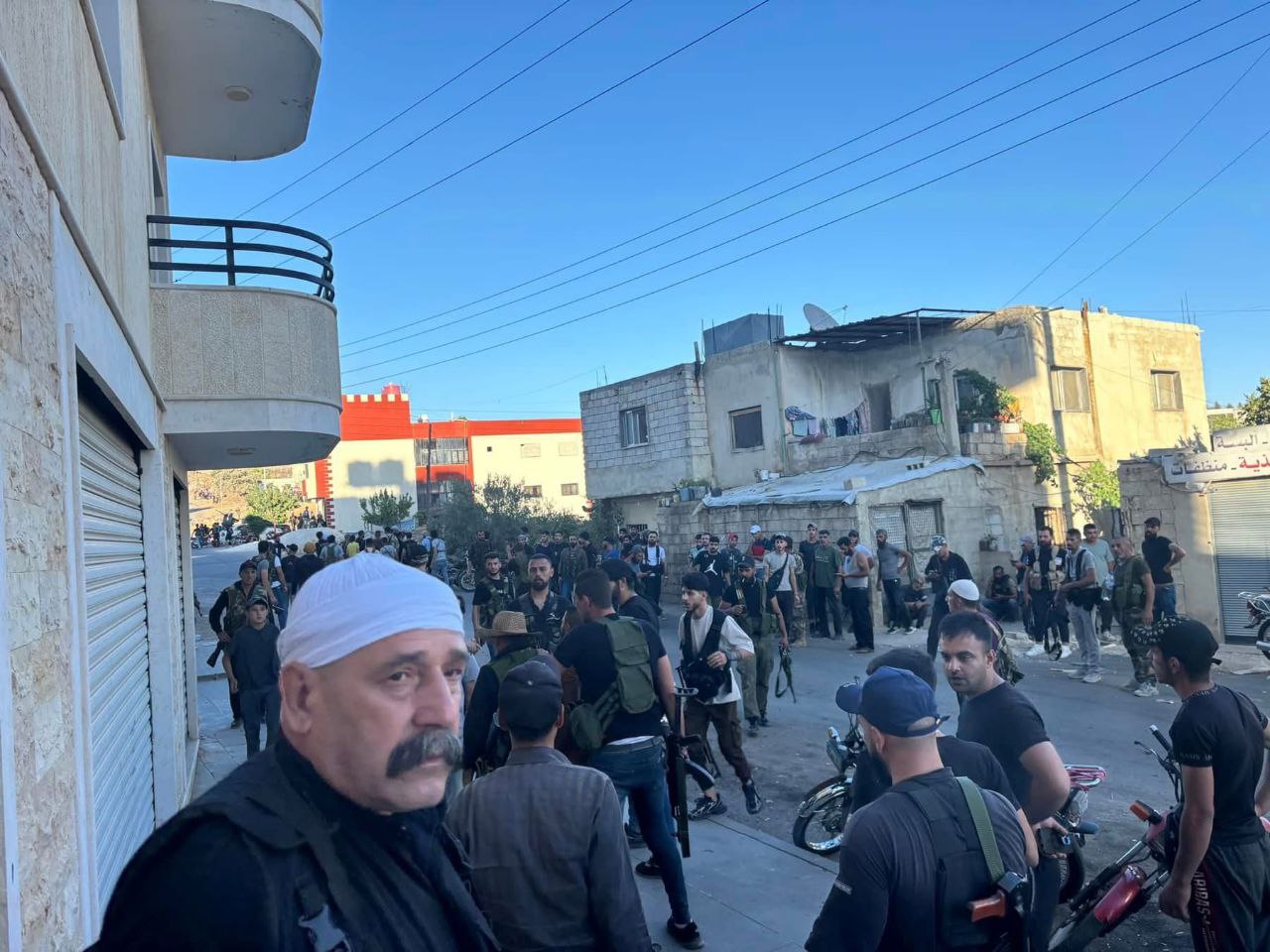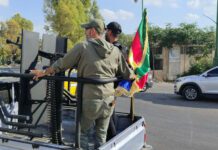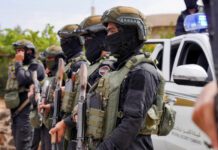
Fierce clashes broke out Sunday, June 13, in Suwayda province between Arab tribes and local Druze militias amid rising tensions on the Damascus-Suwayda road, exposing deep fractures in security and governance in the south.
The violence, centered around the Maqous neighborhood and western countryside villages such as Tayyira and Labeen, has left at least 15 people dead and more than 50 injured, according to Suwayda 24 and local medical sources.
The unrest followed a robbery incident on the Damascus-Suwayda road, where a merchant was briefly detained. Retaliatory kidnappings quickly escalated into armed confrontations involving medium weaponry and shelling.
Calls for Calm Amid Fragmented Authority
In a statement Sunday, Sheikh Hamoud al-Hanawi, spiritual leader of the Druze Unitarian community, warned against sedition, stressing that “dignity is not preserved by weapons, but by reason.” He urged President Ahmad al-Sharaa and tribal elders to “quell sedition, curb tampering, and protect dignity” through dialogue and restraint.
“This is not our battle, and we are not enemies of one another. Our blood and livelihoods are sacred to one another.” The statement denounced what it called a “detestable plot” and called on the government to secure the vital Damascus-Suwayda road and protect civilians.
Governor Mustafa al-Bakour also addressed the crisis, warning of “attempts to sow discord” and calling on all parties to “respond to the arbitration of reason and dialogue.” He affirmed the state’s responsibility to protect citizens and support civil peace.
Obstruction, Interference and Isolation
Local officials and civil society actors attribute the deteriorating security to obstructionist factions within Suwayda, including elements aligned with the controversial Hikmat al-Hijri’s political movement, remnants of the former regime, and separatist instigation. These groups have been accused of resisting integration with central government institutions and creating conditions for ongoing instability.
Brig. Gen. Nizar al-Hariri, deputy commander of internal security in Suwayda, said the security collapse stemmed from the robbery and the wave of retaliatory kidnappings that followed. He confirmed clashes were being monitored and stressed “official and popular calls” for de-escalation.
The city also saw direct attacks on police checkpoints and residential neighborhoods, including the burning of a house in Maqous and shelling in Soura al-Kubra. Armed groups reportedly launched attacks from areas linked to separatist or external agendas, with online speculation of “Israeli influence” and cross-border destabilization efforts.
Efforts to Prevent Wider Conflict
In neighboring Daraa, Internal Security Forces deployed near the administrative border to prevent the spread of unrest. Brig. Gen. Shaher Jabr Omran stated that coordinated operations with the Syrian Army aim to contain “any outlaw elements” that may exploit the situation.
Mediation continues between Druze sheikhs and tribal leaders in an effort to secure the release of kidnapped individuals and restore calm. Blood banks in Suwayda have issued urgent appeals for donations, highlighting the severity of the ongoing crisis.








